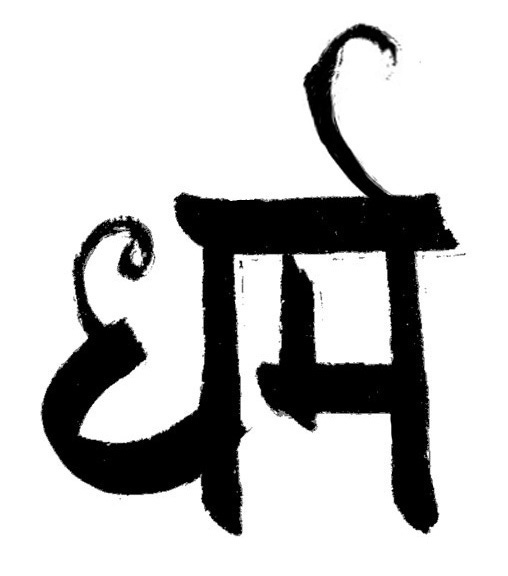Decoding Dharmā : The significance of Dharmā in our everyday lives
Dharmā, along with many other words in the Vedic culture, is not translatable into english because of the multiple meanings it can have. This post talks about Dharmā in the context of one's journey.
What is Dharmā?
“Dharmā” and “Karmā” are sometimes thrown around carelessly on social media. But what, exactly, is the "true meaning of Dharmā"? What's the significance in our daily lives?
"Dharmā," along with many others used in the Vedic culture, is not translatable into English because of the multiple meanings it can have. This time, I will talk about "Dharmā" regarding one's journey.
Dharmā [dhur-muh] The term "Dharmā" (धर्म) is derived from the Sanskrit root "dhri," which means to nourish, uphold, and sustain. Dharmā is the essence of one's individuality. To put it simply, Dharmā is " that which you make part of your being”.
Dharmā: the evolution of individuality
Dharmā is the essence of who you are and the values you choose to live by. This is Dharmā's ultimate goal: to give your life meaning and direction and to uphold your values, whatever they may be.
In the Shanti Parva chapter of the Mahabharata, it is said that the sole aim with which Dharmā is advocated is to bring about the evolution of individuals. "That which is able to bring about evolution is Dharmā."
Dharmā is therefore something that each individual must discover for themselves by searching within and exploring their values.
Dharmā: means of spiritual development
When one forms an understanding of what "Dharma" means to them, one can progress spiritually. One can learn more about Dharma and how it affects spiritual growth by thinking about themselves and looking at what one values.
Using a self-determination approach, one can create an objective way of looking at life and living. they are referred to as "Swadharmā," i.e., choosing one profession (Varnashrama Dharmā).
Dharmā - paramount to having a meaningful life
Every living thing understands its Dharmā; birds do what birds do, trees know about their nature, snakes do what snakes are supposed to do, and insects do what insects do, but it is humans who have the choice to be able to choose the right path that is suitable to our nature, what we are good at, and what we desire in life.
When it comes to humans, they are endowed with the capacity to think and reflect upon their environment and also make decisions on which path they want to choose in life, with that power of choice comes great responsibility, and that's why introspection and choosing one's dharma become paramount to having a meaningful life.
There is so much more to talk about Dharmā, its context, and its description in the Vedic texts, but as promised, I want to keep it in a digestible format and will continue in the next post of this series.
The goal of The Veda Project is to spread this Vedic knowledge to as many people as possible, so if you found this post useful, all I ask is that you pass it along to someone else who could benefit from it.
With love and gratitude,
- Sarvesh






Dharma has no word in English or Arab because they are brainwashed by exclusive doctrines that makes one incapable of discovering this aspect of nature(life) that is applicable to all of human beings for the well-being of one and all lives on Earth.